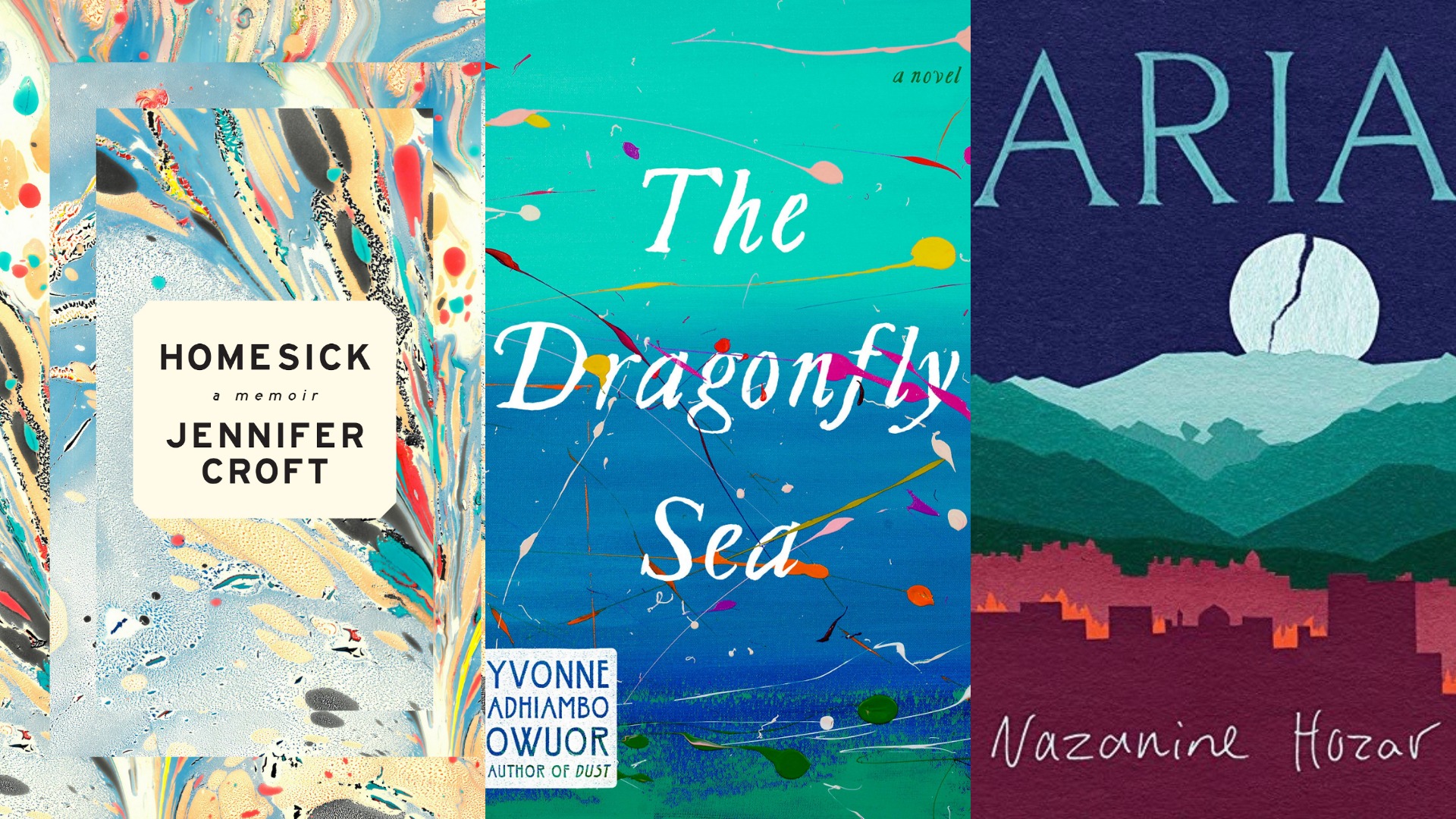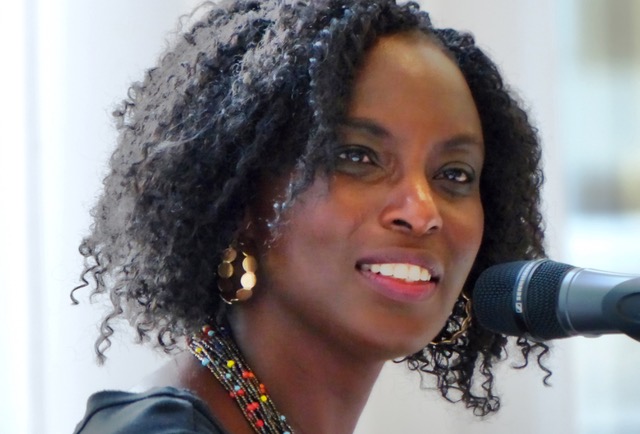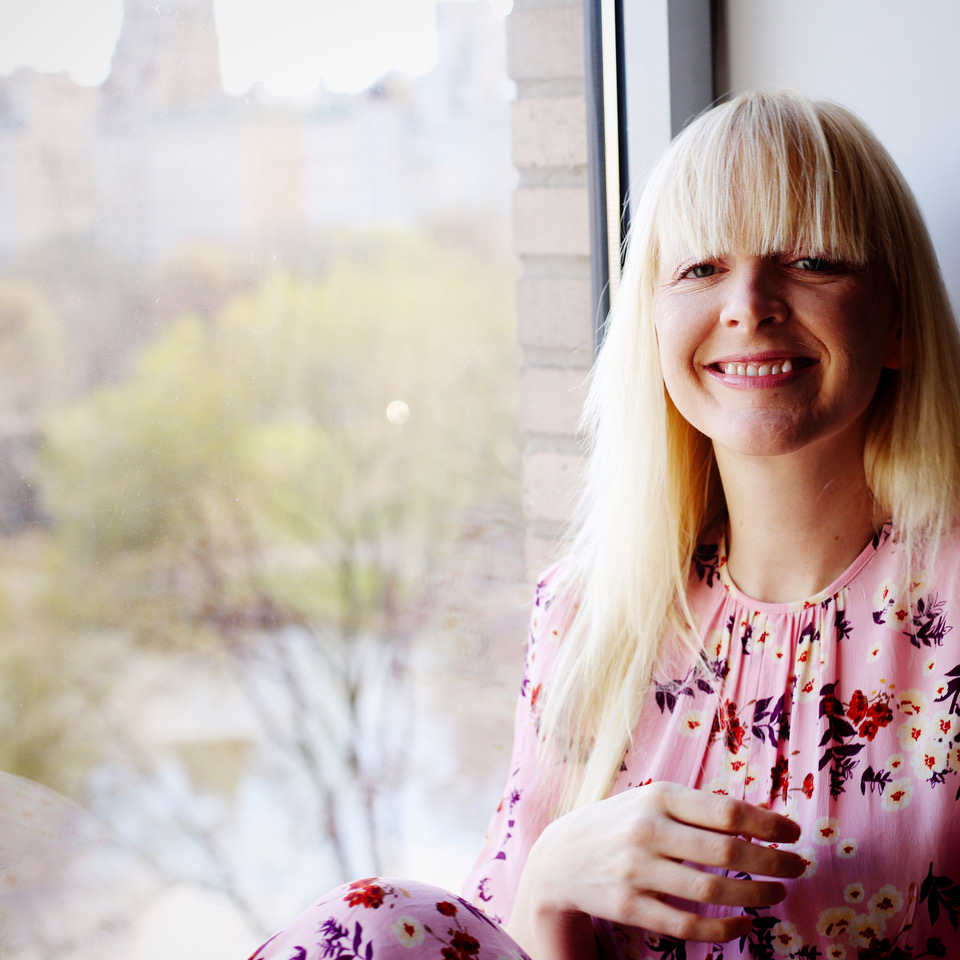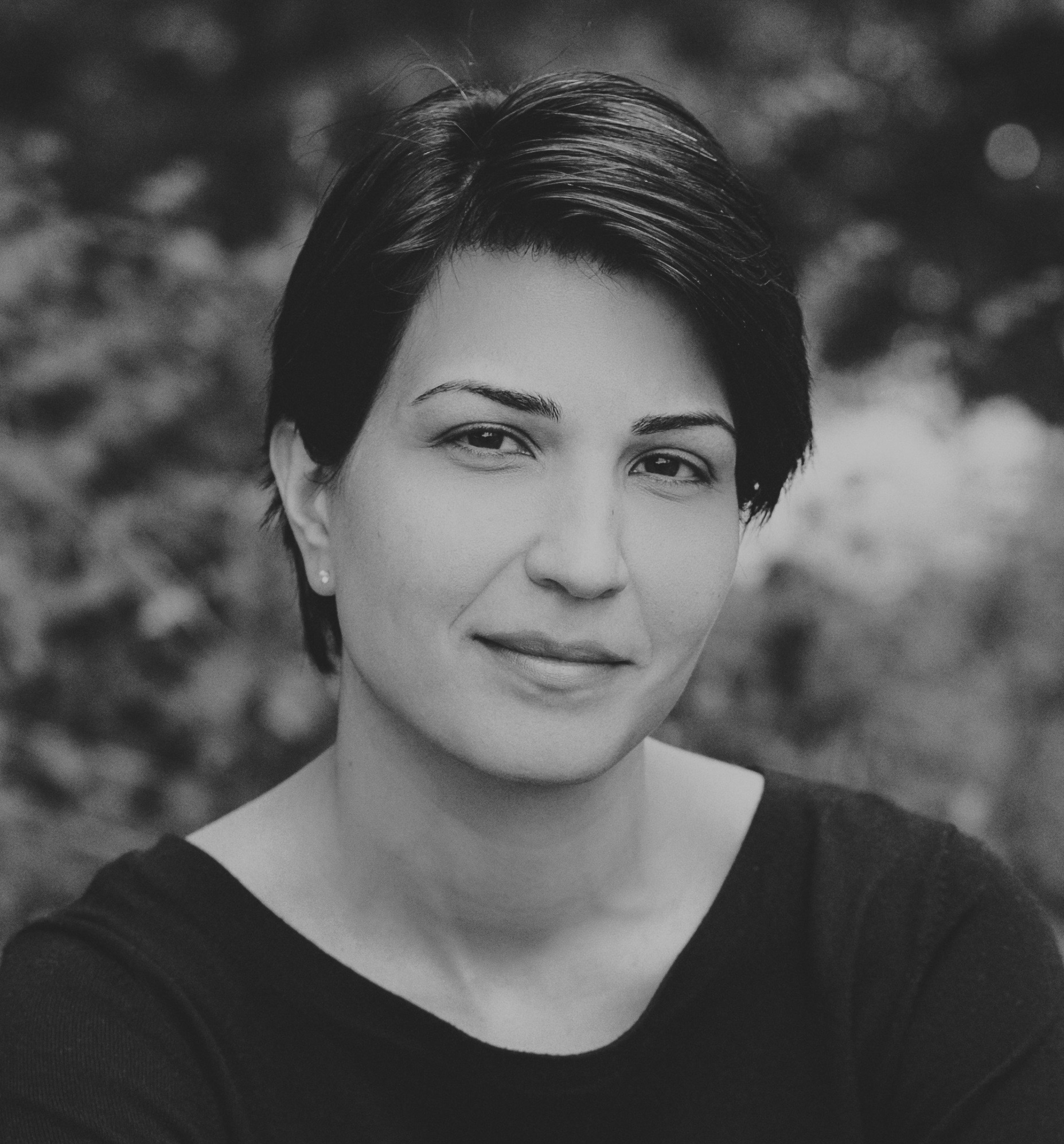Through the Eyes of a Girl: A Cross-Border Conversation with Yvonne Adhiambo Owour, Jennifer Croft and Nazanine Hozar

In this series, author Rachel Rose brings together writers in different parts of the world to discuss their writing, their inspirations and the context in which they work.
The three writers in this conversation have recently published new books: Kenyan Yvonne Adhiambo Owour wrote The Dragonfly Sea; American Jennifer Croft wrote Homesick; and Iranian-Canadian Nazanine Hozar wrote Aria.
Rachel Rose: I did not know, when I selected your books, that although you have great stylistic differences, you are each telling the story of a young girl trying to make sense of her place in the world. Each of your protagonists is a child searching for roots and redefining her sense of self when home becomes unstable. These three books tell of a girl’s coming of age in three different cultures: Iran for Aria, the small island of Pate in Kenya for The Dragonfly Sea, and Oklahoma for Homesick.
How did each of you create your main characters, these fierce, vulnerable girls, each yearning for something or someone they may never possess?
Yvonne Adhiambo Owour: Ayaana, the protagonist in The Dragonfly Sea, is a composite being. She was conjured by historical incidences, the delight of the young children I watched dancing in the sea when I lived in Zanzibar, my nieces and nephew and their wise questions, some of which are used verbatim in the story. (“Aunty Voni, someone has bited the moon,” said my outraged nephew, Thomas, one day.) Ayaana also came from my own passion for the ocean, and questions about being in this world and constantly searching for the hearth of ‘home’. It all came together one day when I heard a little girl sing behind a city fence.
Nazanine Hozar: Similarly to Yvonne’s Ayaana, Aria is many characters in one. Her initial story is based on a real occurrence, but the character herself is someone I had to work hard to bring to life. She has many sides, as most humans do. Yet there had to be a constant about her, and that is her resilience. This is what I’ve observed throughout my life, especially when I was younger: the resilience of the women and girls around me. In my case they were Iranian women, Iranian girls. But women throughout the developing world are burdened with having to be tough, having to fight and struggle. I suppose she was born out of struggle, either outside of me or within me.
Jennifer Croft: Yvonne’s publisher says that The Dragonfly Sea “is a transcendent story of adventure, fraught choices, and of the inexorable need for shelter in a dangerous world.” My story is also about fraught choices and the inexorable need for shelter. Homesick’s main character is based on me. Most of the fraught choices she makes have to do with her sister as their relationship changes as the two of them grow up and are faced with a series of disastrous events outside of their control. I was interested in thinking about conflicting impulses like homesickness and the need to escape, to be free, to explore—a conflict I have felt for most of my life, living in other countries and becoming a literary translator, leaving behind my birthplace of Tulsa, Oklahoma.
RR: Mothers and daughters have complicated relationships in all your books. In The Dragonfly Sea, Munira betrays Ayaana, trying to redeem herself only after it is almost too late, only after her daughter has been wounded. There’s this heartbreaking moment: "'Get up,' Munira told Ayaana, rather than I’m sorry. 'I’ll burn the dress,' she said, rather than I’m sorry."
There are equally difficult betrayals in Homesick and Aria. How did each of you navigate the challenge of portraying mothers as neither heroes nor villains, but complicated characters?
YAO: Because mothers are complicated beings, aren’t they? They are never just one thing, and to be who they often magnificently are in order to be ‘mother’, they have given up something so vital within them. I ask what happens when that vital, unrested thing starts to whisper again. It never just goes away. And when it erupts, its target is usually one that is closest to them, the one for whom the gift within was surrendered. A mother, as a gateway through which life extends itself on earth, has a certain power to consume this same life in a way no other force or entity does. I looked at some of these dimensions of motherhood in the character of Munira, and how this power and darkness frames the choice of being of a next generation woman.
NH: I think some mothers are true heroes, though rarely are they villains. And even the heroes have their darker sides. The three mothers in my book all interact with the world, and with Aria, through the accumulated constraints of their lives. I guess it was important to me to be very transparent about that.
JC: I can’t add to what Yvonne has put so beautifully, and what I also tried to think about in Homesick. But mostly my book is just about the sisters’ world, which excludes everyone else, including their mother.
RR: One of the characters in Aria, a woman in prison, says, “Madmen hide behind their causes...Only the sane are without cause. And now the whole world will pay.”
Ayaana could easily have voiced the same observation in The Dragonfly Sea. Both Aria and The Dragonfly Sea deal with cultures struggling against encroaching fundamentalism, while Homesick is set against a background of casual Oklahoma brutality (a neighbour gets shot by another neighbour, saved only by a plug of tobacco in his cheek). Violence is unpredictable and omnipresent in these girlhoods. The young protagonists must define themselves through grappling with loss: loss of innocence, loss of family, near-loss of a beloved sister.
Could you each please talk about the political situations that inform your books, and why you focus on these specific places?
YAO: The Dragonfly Sea probably falls under that category of literature known as ‘historical metafiction’. So it does use the trends of the past and the current times to evolve a tale. These include the so-called “War on Terror’, the Chinese return to Africa, its contents and discontents, the alleged ‘War of Civilizations’ which has rather idiotically positioned an imagined west (itself a fiction arising from the Treaty of Tordesillas) against an ‘Islam’ that truly does not exist. On a local level, it weaves in the politics of a Kenyan state that has marginalized and suppressed the life and history of its maritime territories, and turned them into sites of exploitation, rather than remembering and deepening the sense of our many selves.
NH: I wasn’t keen on making this book political. It was something I tried hard to avoid. But it’s almost impossible to engage with these characters’ lives without acknowledging their political situation. I think what’s key here is to not focus on the “politics” but rather on the consequences of power for the sake of power. Politics itself can be a wonderful thing, if practiced properly and truly democratically. What is taking place in Aria is something more sinister, cloaked beneath the veil of politics. It’s cultural power, religious power, gendered power, which are manifested through the interpersonal experiences between the characters. The need for these power positions arises from fear, I think.
JC: There are so many things happening underneath the surface of Homesick—gun violence is certainly an important one. I experimented with several possible endings, one of which led to a shooting, another of which led to severe storms and the relationship between homesickness and climate change. But in the end I decided to keep this story small, to cut it off at the moment of my character’s discovery of the world outside of Oklahoma, that initial euphoria combined with the fumbling that comes with any new experience. She’ll be grappling with the rest for the rest of her life, as will I.
RR: Yvonne, you have published a beautiful first novel, Dust. Jennifer and Nazanine, I believe these are your first books, though Jennifer, you were the translator for Flights, the experimental novel by Olga Tokarczuk, that recently won the Man Booker International Prize. How did each of you enter the world of writing and how do you define success as a writer? What sustains you in your respective literary communities and what practices concern you?
YAO: Writing found me after I had lost touch with imagining that I could do anything with it in my adult life. In the process it brought me guardians, friends, mentors, and believers who kept cheering me on in what petrified me. This is a good place to acknowledge my friend, brother and barometer Binyavanga Wainaina, who like the elephant deity Ganesh, broke down the rocks that stood in the way of a new imagination of creative writing for East Africans, and certainly for me. He pushed me the hardest every time I returned to my safe corporate hole. After the first work of fiction I ever produced won a significant prize, a lot of new dreams in literature became possible.
Success as writers: write. Write, and keep writing. And then hear what your hardcore readers tell you, because they too are incredible gauges of what your writing means. Write because if you did not write you would go mad. Success is that—to keep writing no matter what. What sustains: the ecology of like hearts, libraries and bookshops, an income that comes out of the grace of literary encounters, moments, and from the literature one produces. Practices: if it has to do with writing, with improving, with growing, with learning, with discovery in literature it concerns me.
NH: I write because I have to tell these stories. I wanted to make movies first or write and direct plays, but that involves a lot of resources. I also prefer to be alone with my imagination. Success is writing well and thinking well, understanding and treating humans well, writing about them well, with empathy. And writers must be given the freedom to use their empathy, to discover and learn. I think honest writing isn’t so much about teaching others things, it’s about teaching yourself something.
JC: I completely agree with you. For me, everything I have ever done has been connected with literature and language, always through the lens of empathy. I have translated from Polish, Russian, Ukrainian and Spanish and want to continue learning languages and living in places and discovering new writers and the cultures and traditions they carry with them. All that is empathy. Translation is pure empathy. Homesick is ultimately about the dangers of empathizing so much you lose track of your own desires, your own voice. So another goal of mine is to prioritize my own work in the next few years, as well, to make enough time for my next book, a novel called Fidelity, and the other projects I’ve been considering and drafting for years.
RR: “Translation is pure empathy.” Yes, especially the way you work as a translator, Jenny. And thank you, Yvonne, for your phrase, “the ecology of like hearts”—that has been so true for me in my own literary wanderings. Nazanine, I think so many writers and readers share your preference to be alone with our imaginations, while also, as you say, writing with empathy, “understanding and treating humans well.”
Thank you all for sharing your thoughts and observations on the writing life, and may each of your new books go on to reach many readers of like hearts.
Rachel Rose's most recent collection of poetry, Marry & Burn, received a 2016 Pushcart Prize and was nominated for a Governor General’s Award. Her memoir, The Dog Lover Unit: Lessons in Courage from the World’s K9 Cops, was a finalist for the Arthur Ellis award for best non-fiction crime book, 2018. A former fellow at The University of Iowa’s International Writing Program, she is the Poet Laureate Emerita of Vancouver. (http://rachelsprose.weebly.com/)

Author from Nairobi, Kenya, and self-described ‘wanderer’ Yvonne Adhiambo Owuor won the 2003 Caine Prize for African Writing for her short story, the Weight of Whispers, which considers the travails of an aristocratic African refugee in Kenya. She is the author of the well-received Dust (Knopf 2014) and The Dragonfly Sea (2019). Her many other works have appeared in numerous publications worldwide including Granta magazine of new writing, and the Daughters of Africa anthology. She is, at present, a Wissenschaftskolleg zu Berlin Fellow where she is working on her next novel, The Long Decay (working title).

Jennifer Croft won the 2018 Man Booker International Prize for her translation from Polish of Olga Tokarczuk’s Flights. She has also received NEA, Cullman, PEN, Fulbright and MacDowell fellowships and grants, as well as the inaugural Michael Henry Heim Prize for Translation, the 2018 Found in Translation Award and a Tin House Scholarship for her novel Homesick, originally written in Spanish, forthcoming in English from Unnamed Press in September, in Spanish from Editorial Entropía and in Polish from Wydawnictwo Literackie in 2020.

Nazanine Hozar was born in Tehran, Iran, and lives in British Columbia, Canada. Her fiction and non-fiction have been published in The Vancouver Observer and Prairie Fire magazine.





